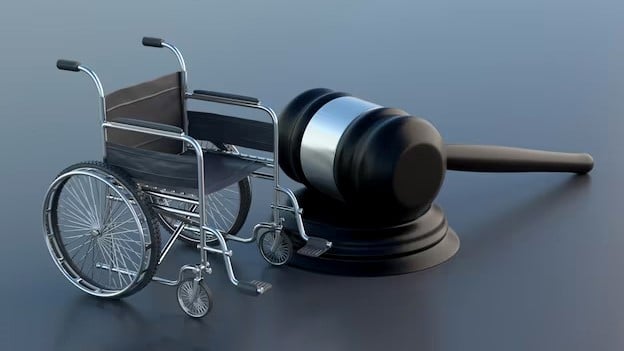Slip and Fall Accidents: Understanding Premises Liability Laws

You’re going about your day full of enthusiasm, and then suddenly, whoop!
You find yourself on the ground, nursing an unexpected tumble.
Fear not, brave souls!
In this guide, we’ll unravel the mysteries of slip and fall accidents and how to tackle with them like a seasoned pro. From understanding your rights as a visitor to holding property owners accountable, we’ll equip you with all the knowledge. This enables you to stride confidently through the realm of premises liability. So, gather your courage and let us begin this empowering journey together!
Premises Liability: A Primer
Premises liability is like the guardian of safety, ensuring property owners and occupants take good care of their places for you and other visitors. From cozy homes to bustling stores and serene parks, wherever you go, they have a duty to keep you safe. So, if you take an unexpected tumble due to a dangerous condition on their property, they might have to answer for it. It’s like being in a real-life adventure – one misstep, and they could be held responsible for any injuries or damages you encounter. Now, let’s venture forth and understand how premises liability laws can be your shield of protection!
Common Causes of Slip and Fall Accidents
(a) Wet or Slippery Surfaces: Spills, leaks, or recently mopped floors can create hazardous conditions, especially in places like supermarkets, restaurants, and public restrooms.
(b) Uneven or Damaged Flooring: Cracks, potholes, loose floorboards, or uneven tiles can lead to trips and falls.
(c) Poor Lighting: Inadequate lighting can obscure hazards and make it difficult for people to see potential dangers in their path.
(d) Obstructed Walkways: Cluttered pathways, debris, and misplaced objects can cause unsuspecting individuals to trip and fall.
(e) Absence of Adequate Signage: Neglecting to put up warning signs for potential hazards like wet floors or construction zones can heighten the risk of accidents.
(f) Weather-Related Hazards: Improperly managed snow, ice, or rain can lead to slippery surfaces on sidewalks, parking lots, and entryways, making them accident-prone.
Proving Liability in Slip and Fall Cases
Here comes the crucial part, proving that it wasn’t your fault. To make your case strong, you need to show that:
- The property owner should’ve taken care of the problem (duty of care).
- They failed to fix it or warn you about it (breach of duty).
- The hazardous condition directly caused your slip and fall (causation).
- You suffered damages like medical expenses or lost wages due to the accident (damage or loss).
The Power of Comparative Negligence
Sometimes, you might share some responsibility for the slip and fall in Toronto – but fear not! In many places, they use something called comparative negligence. It means they’ll consider the fault of both parties and adjust the compensation accordingly. So, don’t worry if you think you might have had a tiny role in the accident; it doesn’t mean you lose your chance for compensation!
What to Do After a Slip and Fall Accident
If you ever experience a slip and fall accident, make sure to follow these vital steps to safeguard your well-being and potential legal claim:
(a) Prioritize Medical Attention: Your health and safety come first. No matter how minor you think, your injuries are, seek a medical evaluation, as some issues might not show immediate symptoms.
(b) Document the Scene: If possible, take photos or videos of the condition that caused your accident. These visual records can serve as valuable evidence later.
(c) Report the Incident: Inform the property owner or manager about your accident and ask for an incident report to be filed. Obtain a copy for your records.
(d) Gather Witness Information: If there were any witnesses to the accident, collect their names and contact information. Their statements may confirm your version of events.
(e) Preserve Evidence: Keep the clothing and shoes you were wearing during the accident, as they may contain relevant evidence, such as debris or substances from the hazardous surface.
(f) Refrain from Making Statements: Avoid discussing the details of the accident with anyone other than medical professionals, your legal representative, or your insurance company.
Getting Legal Support
You’ve sustained minor or serious injuries in a slip and fall accident. If it is due to a property owner’s negligence, contacting a seasoned personal injury attorney is crucial. They’ll evaluate your case, explain your rights, and expertly navigate you through the legal process to pursue rightful compensation for your losses.
Conclusion
Slip and fall accidents can result serious consequences, leaving victims with injuries and financial burdens. Understanding premises liability laws is crucial for property owners and visitors to ensure a safe environment and uphold accountability when accidents occur. Remember, knowledge is power, so equip yourself with this valuable information to navigate the complexities of premises liability and safeguard your well-being wherever your journey takes you.
Author Bio
I am Matthew Baker, working as a professional guest blogger and content writer at Kotak Law From product descriptions to technical articles and SEO content on various topics, I have honed my skills in delivering engaging and optimised written materials. I am a seasoned content writer with 8 years of experience and have a specialisation in technical, Non-technical and e-commerce website content writing.


Recent Comments